How the women of Unterbäch claimed the vote
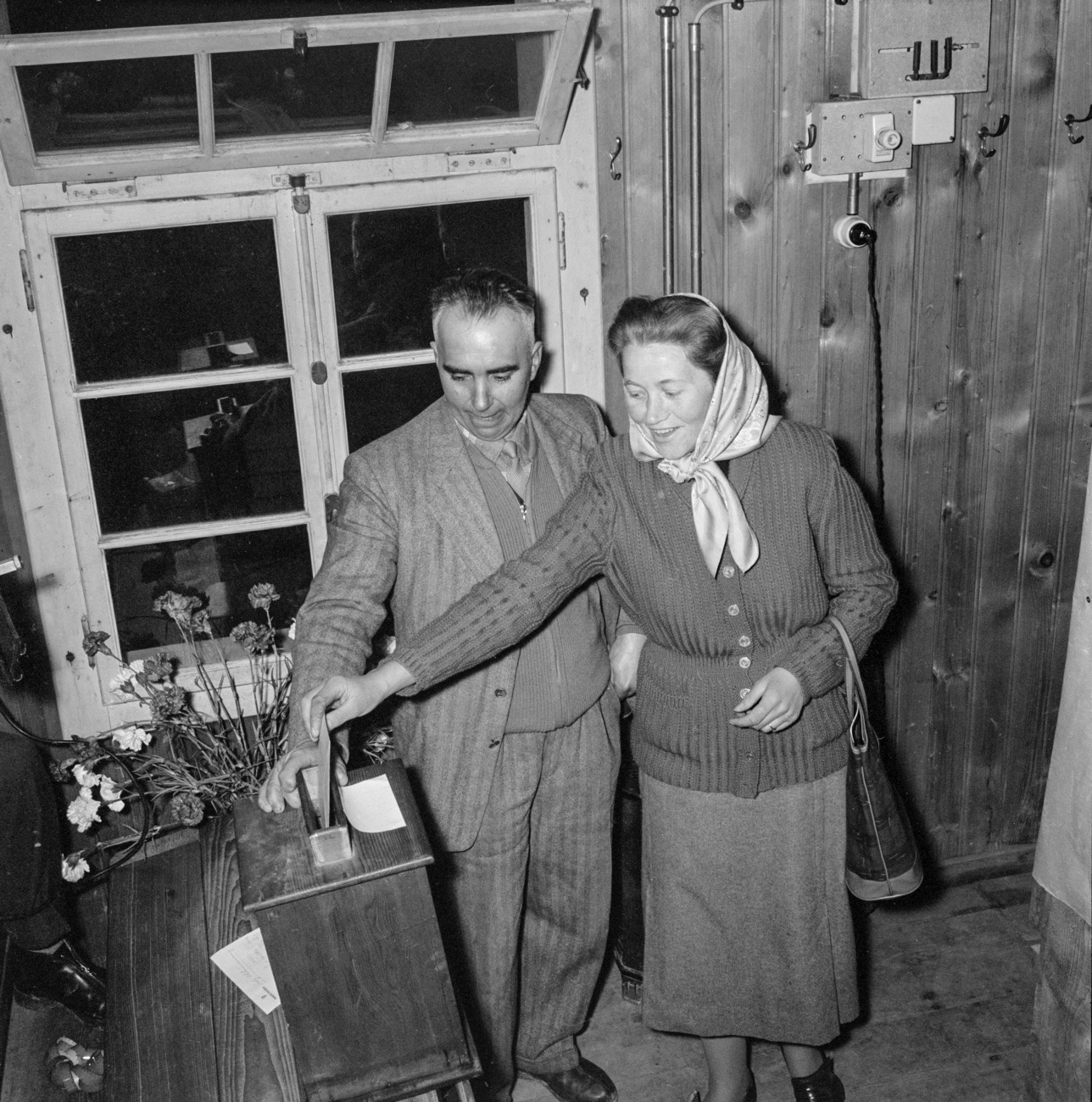
In 1957, Swiss women voted for the first time in the mountain village of Unterbäch – against the wishes of canton Valais, the Swiss government and many local people. SWI swissinfo.ch journalist Gaby Ochsenbein spoke to some of the women in 2009.
No, she hadn’t voted at the time, but her sisters had, said an elderly lady on the main road. “There were journalists standing around with cameras everywhere. I was heavily pregnant, it was all too much for me.”
The historic voting station is a small house in the middle of the village. Today, it is home to the Milchhütte dairy. “Up there on the first floor, that’s where the ballot took place,” recalled Rose Weissen.
On February 7, 1971 Swiss men finally voted to give women full federal voting rights, by a two-thirds majority. Switzerland was the last country in Europe, except for Liechtenstein, to give women the vote.
SWI swissinfo.ch has produced a series of articles, videos and photo galleries to mark this anniversary.
On March 4, swissinfo.ch is organising an online panel discussion on the topic of “50 years after women’s suffrage: old questions of power, new fighters, new successes”. Participants include Marie-Claire Graf, climate activist and UN climate ambassador; Estefania Cuero, specialist in diversity and human rights; and Regula Stämpfli, political scientist specialising in power.
She is the first woman president of the commune council of the small Upper Valais village (population 440), which caused such uproar in Switzerland and made the headlines of the international press 52 years ago. Even the New York Times reported on the event.
A clandestine vote
In 1957 a national ballot was held on the subject of mandatory civil defence service for women. However, women weren’t allowed to cast their votes. It was not until 14 years later that they were granted the right to vote at federal level in Switzerland.
Paul Zenhäusern, the president of the commune council of Unterbäch at the time, did not agree with this as the bill concerned women directly. And so, together with his fellow councillors, he issued the women with a one-off voting right – against the wishes of the national government.
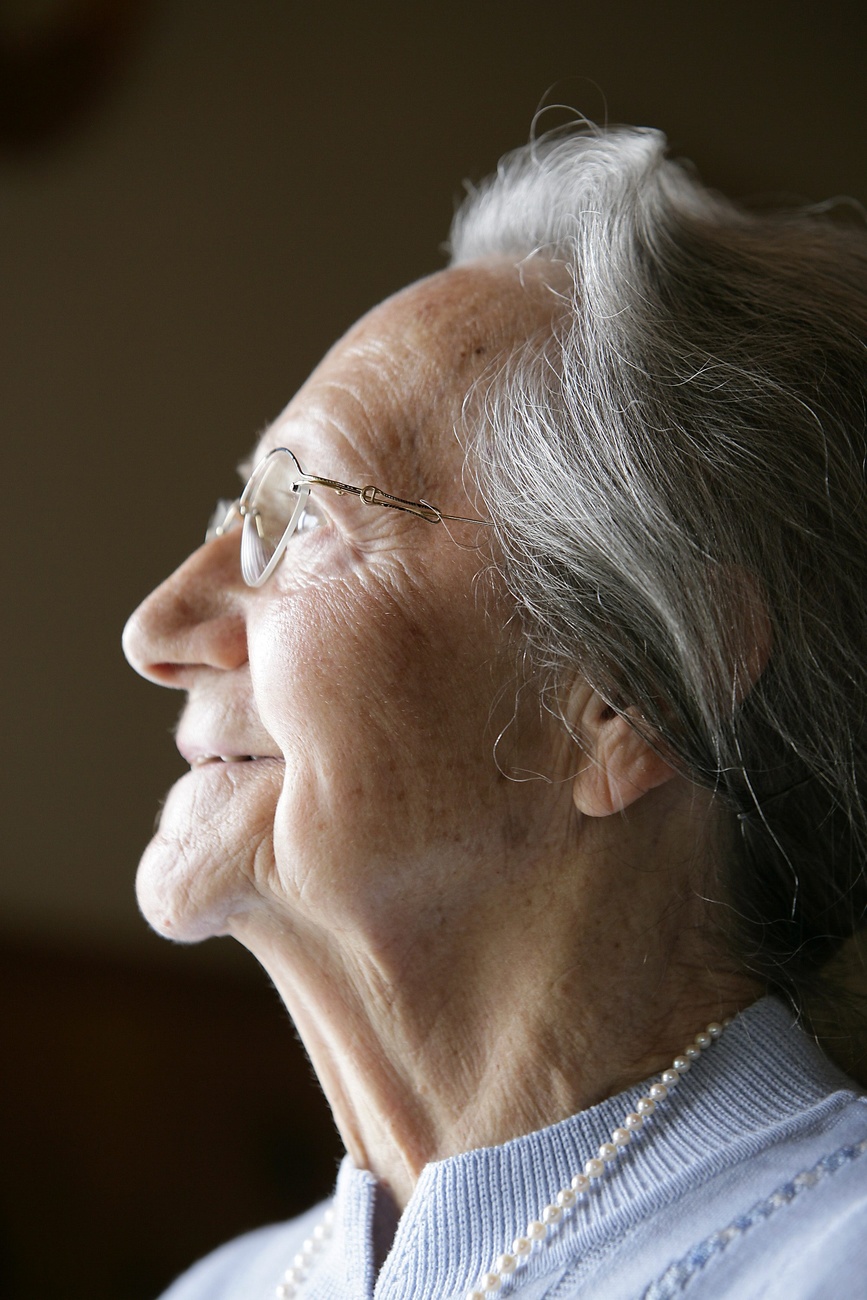
Thirty-three of the 86 women of Unterbäch took the daring step and went to the voting station to cast their votes – after dark to avoid the invective of conservative neighbours. Their votes were never counted.
Ever since this high profile vote, Unterbäch has referred to itself as the “Swiss women’s Rütli”, a reference to the meadow considered the birthplace of the Swiss confederation.
Ingrained in memory
Every child in Unterbäch knows the significance of the historic event of March 3,1957, says Rosa Weissen of Unterbäch’s Progressive Party. “People in the village still know exactly which women cast their ballots that day.”
They all belonged to the CSP, the Christian Social Party. The mother of the current council president was one of them.
The first Swiss woman in the country to cast a vote was Katharina Zenhäusern, wife of the council president of the time and cousin of the current president. The elegant 90-year-old still remembers it well.
“It’s not something you forget very easily.” She explains how proud she is of what women have achieved, even though she is neither a politician nor a feminist.
Loud and explosive
A lot was going on in the village at the time, Zenhäusern remembers. “I would never have thought that it would generate such interest. It was something really new. Prior to this, the woman’s role had always been at home – some men felt let down by the poll, and some women also protested against it.
The first Swiss woman voter is proud of her late husband, Paul, who was an “advocate for women”. Other men had been “dismayed” by the scandal – perhaps for fear of losing power? Perhaps, smiles Katharina Zenhäusern mischievously.
Germaine Zenhäusern, the eldest daughter of the “heroine of Unterbäch” was just six years old in 1957 but remembers the commotion in the streets well.
“I knew that something important was going on and that my mother had a special part to play. But mostly I was scared because of the noise.” She was never teased on account of her mother.
“It was as it always is in Valais: highly explosive at first, but things soon die down.”
Finally, a say
Soon after the “illegal” vote, Germaine Zenhäusern noticed that women did not have the same rights as men. She remembers how a referendum in favour of giving women the right to vote at federal level was thrown out.
In 1971, when women were awarded the vote in Switzerland, she was exactly 20 years old. “Finally, I had a say.” While she never entered politics directly, she has always supported women’s issues and women’s associations. “Just like her dad”, exclaims her mother proudly.
The elder Mrs Zenhäusern is happy that canton Valais has recently voted a woman into its government for the first time. And she is especially pleased that her cousin is now the president of the commune council.
But the president herself is more prosaic: “Of course I’m proud, but there was already a woman in the commune council 16 years ago – that was something special. Today it is a matter of course.”
It no longer matters if you are a man or a woman, she adds, you just have to do the job.
Weissen is aware that a lot has changed in favour of women in the last 50 years, and the historic vote of 1957 did leave its mark.
“There have long been strong women here managing restaurants, village shops and the post office,” she said.
This article was originally published in 2009 by Gaby Ochsenbein, Unterbäch, swissinfo.ch (translated from German).
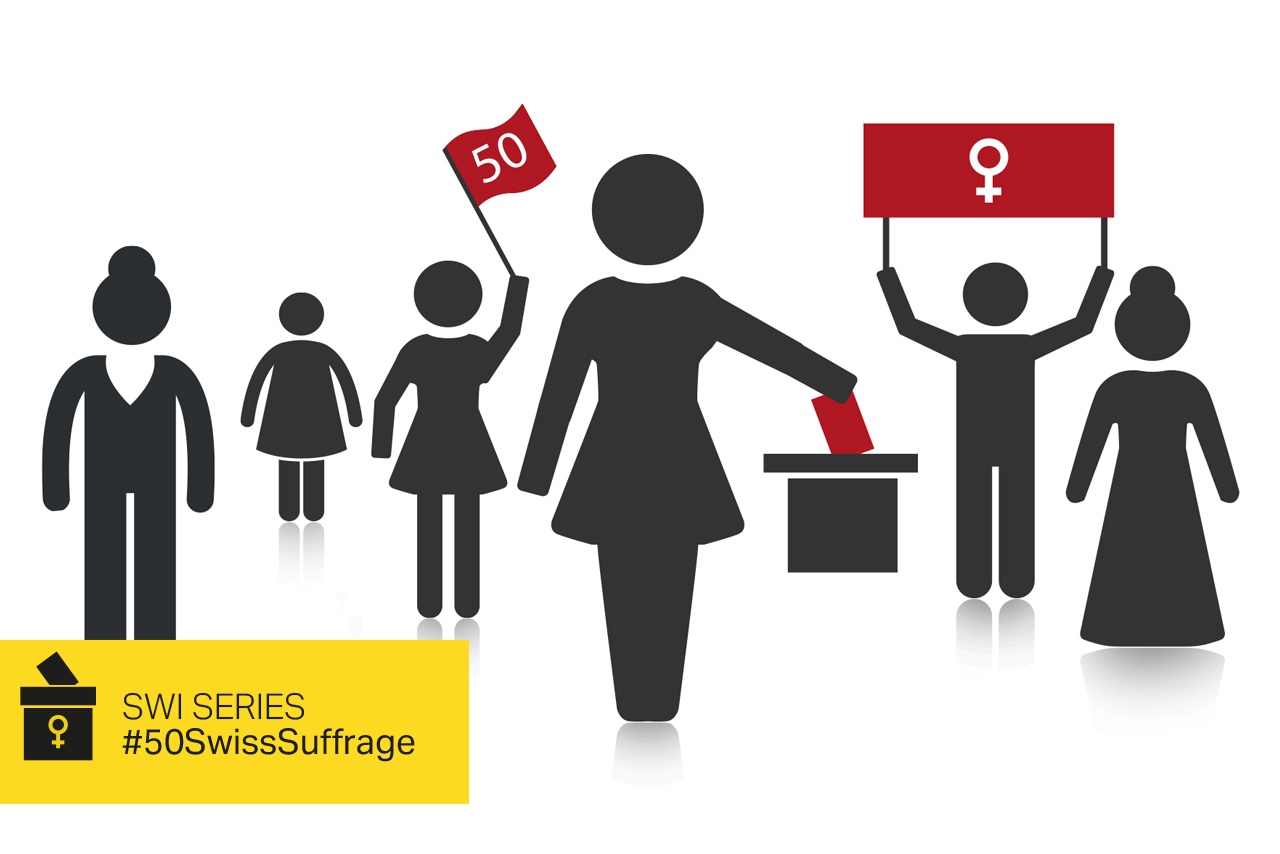
More
The introduction of women’s suffrage worldwide

In compliance with the JTI standards
More: SWI swissinfo.ch certified by the Journalism Trust Initiative
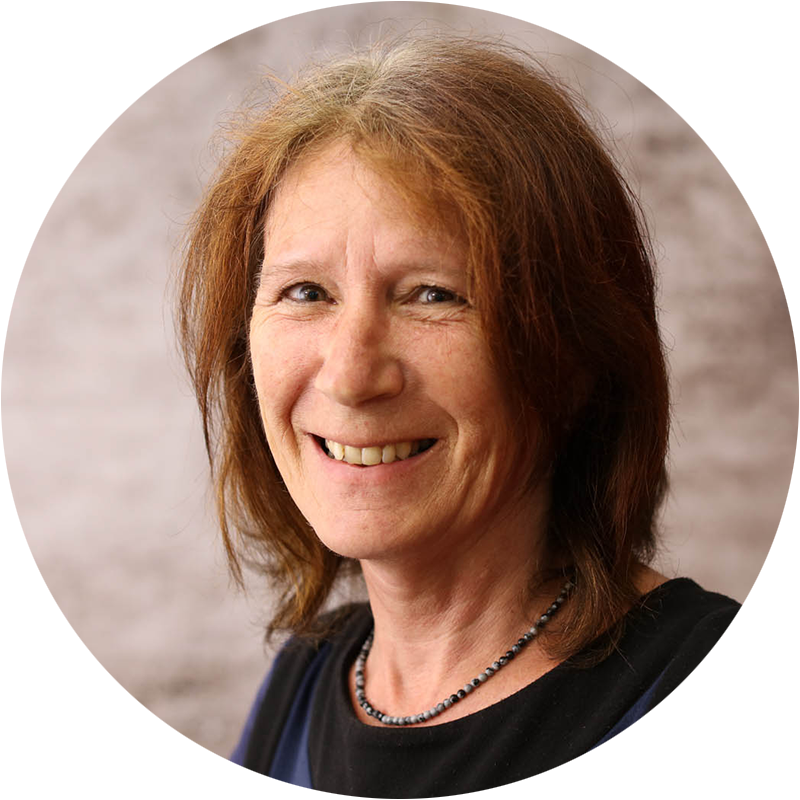
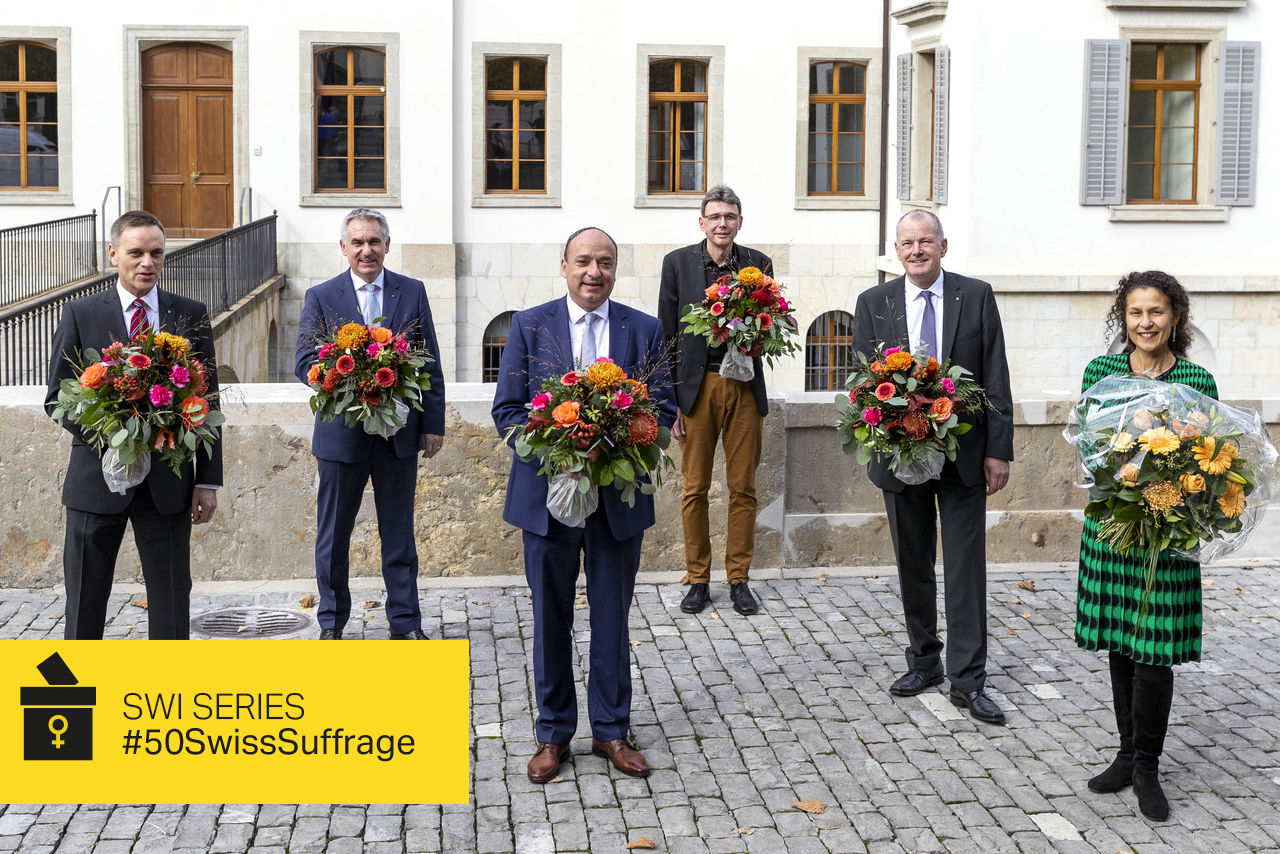
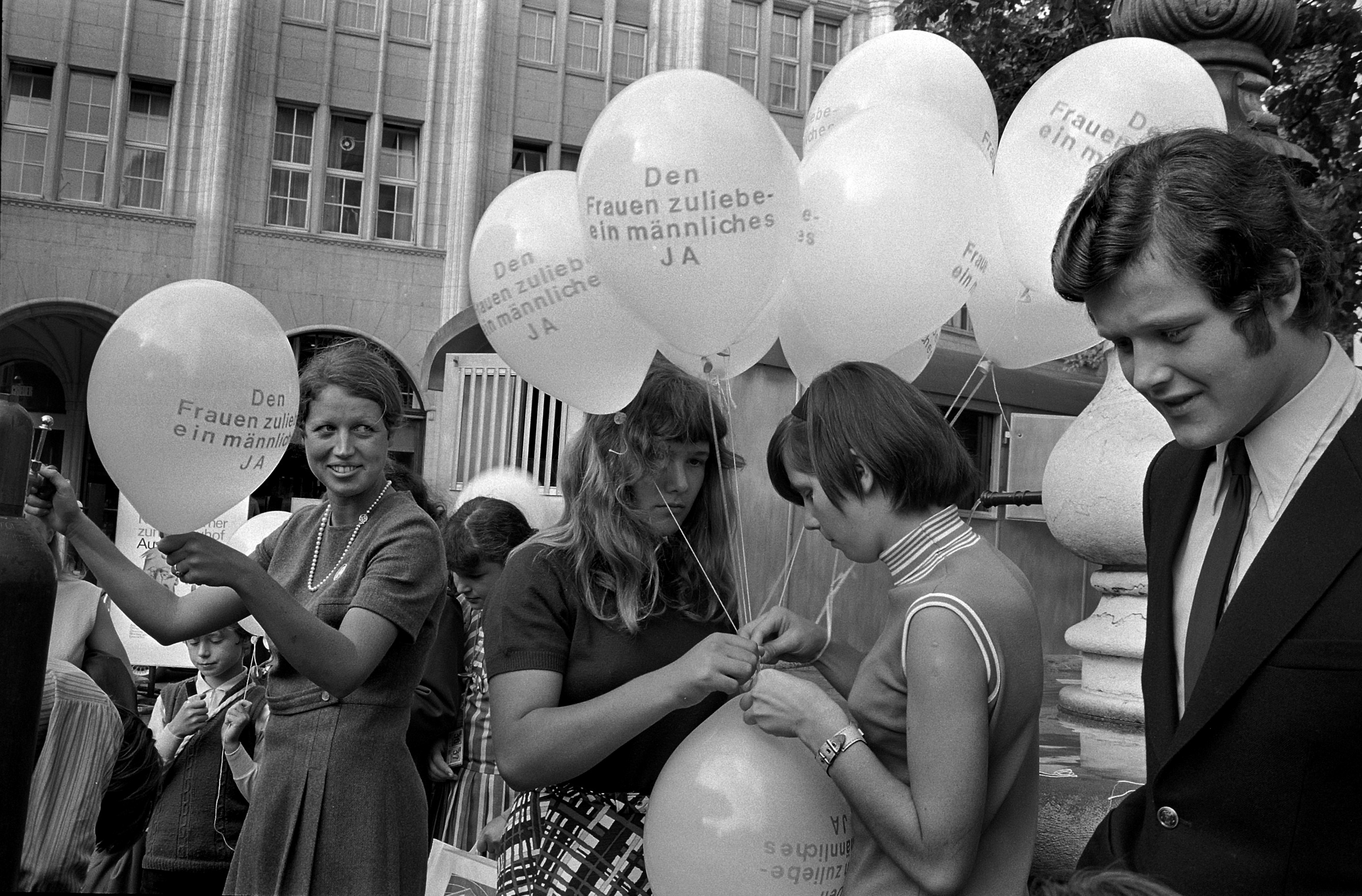
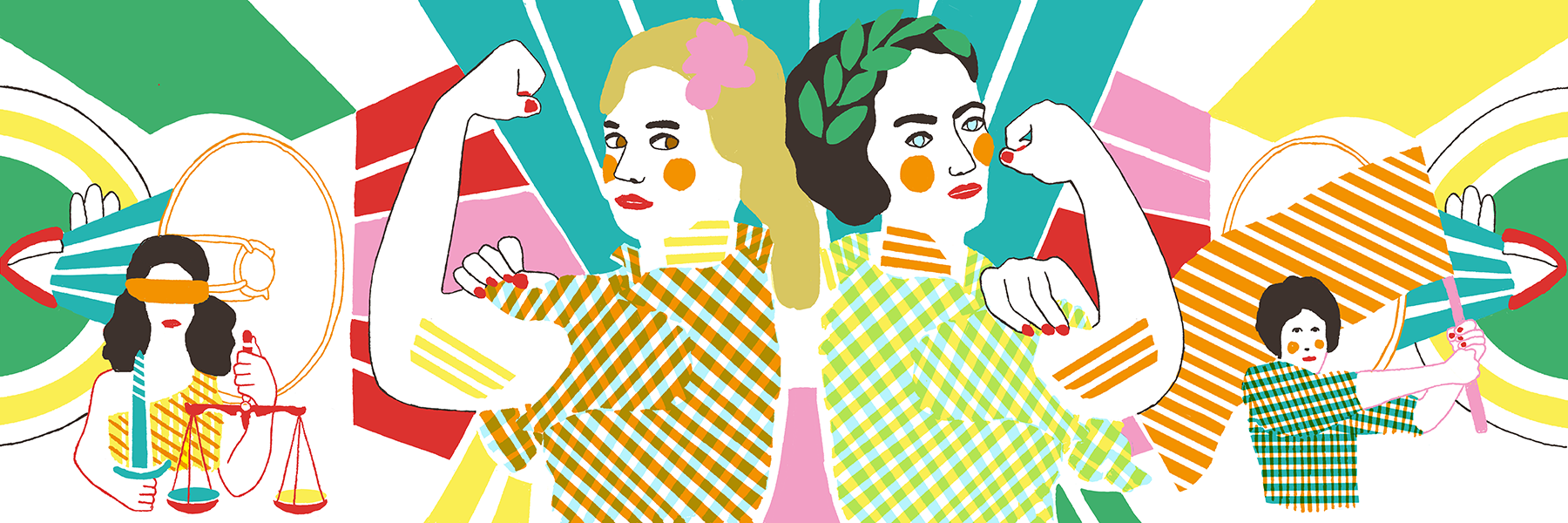
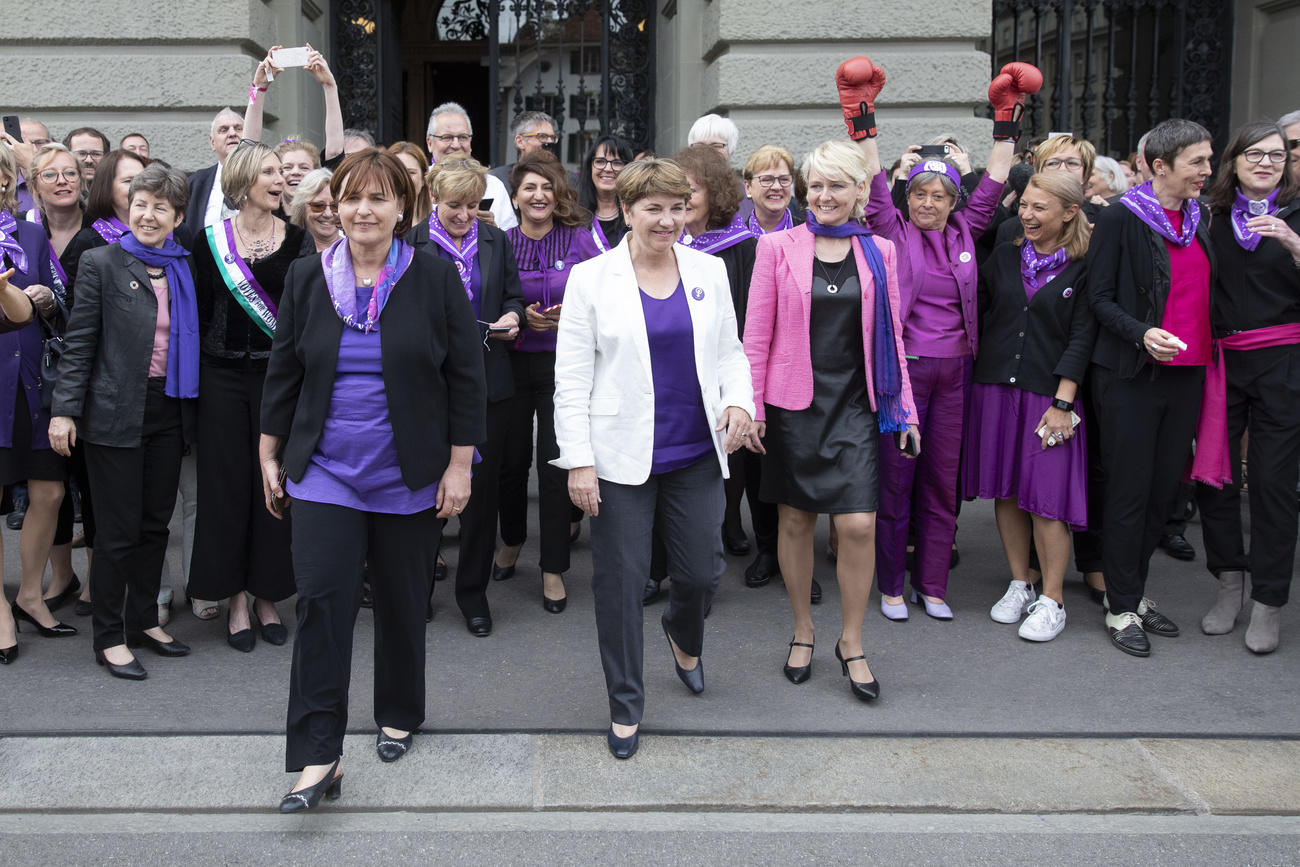
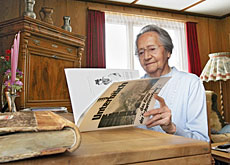
Join the conversation!